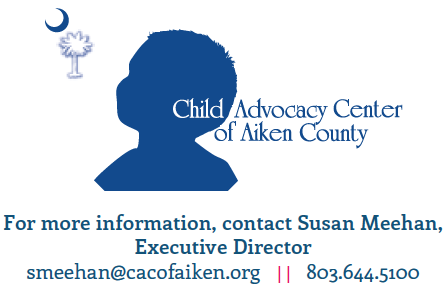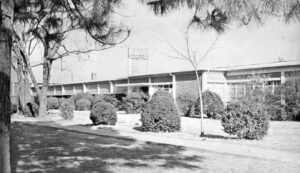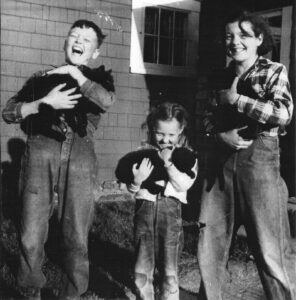The long-awaited grand jury investigation into clergy sexual abuse in Pennsylvania was recently released and detailed sexual abuse by over 300 priests In Pennsylvania. Like many, I was in shock, but this really hit home for me because I grew up in a Catholic church just outside Pittsburgh, Pennsylvania. In fact, I attended Catholic Elementary School.
When I first read the details of the report, I experienced a wide range of emotions from anger and disgust at the church for gross negligence and criminal behavior, to sadness for the victims, many of whom are adults now whose lives were shattered by what happened to them; and finally (and honestly) relief that I was not one of their victims.
What we all need to take away from this report is that the problem of child sexual abuse doesn’t just happen in Pennsylvania. Child sexual abuse is a horrific crime that no one wants to think about happening to their child. But it happens in every state across the country and crosses all socioeconomic boundaries. I have lived and worked in Aiken for 20 years and, yes, child sexual abuse happens all too often in our community too. In 2017 Aiken County ranked eighth in the state for the highest number of founded cases of sexual abuse (dss.sc.gov, data and resources, CPSI Maltreatment Types Founded for SFY-2017).
As a community, I believe we can be empowered and take action. In 2005, I became a facilitator for Darkness to Light’s Stewards of Children, a child sexual abuse prevention program. It focuses on what we, as adults, can do to create an environment that prevents child sexual abuse. When I first took the training, my children were very young and it literally changed the way I parented. I felt more empowered to take active steps to better protect my children.
5 Steps to Protect Children from Child Sexual Abuse [as taught in the Stewards of Children training]
1) Know the facts
The reality is that 1 in 10 children is sexually abused before age 18. Of those, over 90% of them know their abuser. Many times the abuse is not sexual intercourse, but rather sexual touching of children’s genitals, children forced to touch an adult’s genitals, or children introduced to pornographic materials or language.
Most abusers are charismatic, personable, and know no socioeconomic boundaries. Oftentimes, abusers use psychological methods to coerce children. For instance, they bribe and entice with individual “special” attention and “secret” friendship games or by offering tantalizing privileges, treats, or gifts. They also may manipulate children into being a “good” boy or girl; playing upon kids’ guilt and natural desire to please and obey adults or “do as you’re told.” Abusers may also may trick children with comments like, “Everyone plays this game; I’ll teach you the rules.” (ParentingExchange.com)
2) Minimize Opportunity
Eliminate or reduce isolated, one-on-one situations. We all need to begin to insist that daycares, private babysitters, camps, churches or anyone who serves children, have a code of conduct or child safety policies and procedures that detail how they protect children. This includes how one-on-one situations will be avoided or minimized, with both staff and among other kids.
3) Talk About It
Have open conversations with children about their bodies, sex and boundaries. Most research states that children who know their correct anatomical body parts for their ‘private parts’ are less likely to be targeted by predators. Teaching boundaries related to touch is also a key component. For example, it is OK to say no to an unwanted hug or touch or it is not OK to be overly affectionate with strangers.
4) Recognize the Signs
The signs of abuse aren’t always obvious. They are there, but you have to know what to look for. There are too many to list here but some common signs include: a child displaying advanced types of sexual actions or language in their play, asking adult-like questions using slang or vulgar sexual terms, sores or infections around their private parts, nightmares, bedwetting, depression, or fear of being left alone or left with a particular person.
4) React Responsibly
How you react matters. Most children fear “upsetting” parents. So, as shocked as you may be, remain calm, believe your child and give him or her unconditional support. The more supportive you are, the more resilient your child will be on the road to recovery.
The mission of the Child Advocacy Center of Aiken County is to provide services which promote healing to children who have experienced abuse and their families through intervention, treatment and prevention.
The CAC purpose Purpose is to:
- Minimize trauma to child victims of suspected child abuse or witness to violence
- Coordinate a collaborative response to cases of child abuse
- Help children heal from their trauma
- Work to increase community awareness of and how to prevent child abuse in our community
Our ultimate goal is to help children find hope and healing. In 2017, we conducted 495 forensic interviews, 95 medical evaluations and 463 therapy sessions with children who had been abused.

The Child Advocacy Center of Aiken County has more details for each of these steps along with practical examples and other resources on our website, www.cacofaiken.org. We also offer the full Stewards of Children Training (CEU) or shorter mini-trainings to churches, schools, camps and other community organizations at no cost. Feel free to contact us about scheduling a full training or mini training at your location.
by Susan Meehan, Executive Director of the Child Advocacy Center of Aiken County






